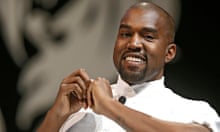Ask for more money. Stop with the "up-speak". Love your body! The helpful pieces of very public advice thrown at women sure are starting to sound more like orders than encouragement. And the latest bit of go-get-'em girl guidance – a commercial from Pantene imploring women to stop apologizing for everything – has just about sent me over the edge. Because instead of just selling us physical insecurity by implying we're fat or wrinkly, beauty companies are now trying to make us feel insecure about our insecurities – all while giving themselves a pat on the back for "empowering" us to feel better (and collecting our money, of course).
Pantene is the most recent company to fall into the "confidence gap": telling women that the source of their woes isn't workplace inequality or crappy partners who don't do their fair share, but women themselves. According to this new dictum, women are self-sabotaging at work, love and life.
The shampoo giant's new ad, part of its #ShineStrong campaign – as in, the shiny hair that you'll have if you buy their product – opens with a question: "Why are women always apologizing?" Viewers are then treated to vignettes of women saying "sorry" for various non-infractions – including, but not limited to: a woman in a business meeting who interrupts a colleague with, "Sorry, can I ask a stupid question?"; a woman who takes back stolen bed-covers from her partner; and a harried mom apologizing for handing a toddler over to dad.
It's hard to disagree with the premise – it's true, these women have nothing for which they need to apologize (and yet many women still do in those situations). The same goes for Dove's incredibly popular "real beauty" campaign – yes, all body types should be accepted and loved. But there's something incredibly irritating, and crass, about beauty purveyors instructing women to "stop apologizing" or "stop hating their bodies" when many such insecurities stem, at least in part, from these very companies' advertisements.
Let's not forget, for example, that Dove's parent company Unilever not only produces the scourge-of-the-nostrils Axe Body Spray – not exactly a bastion of female empowerment – but actual skin lightening creams for women of color. Love your body ... so long as you're white?
And while Pantene got on the feminism bandwagon last year with a commercial about double standards launched in the Philippines, let us not forget their ad in Brazil that used a tremendously large breasted woman to hawk shampoo. (Tagline: "Make sure your hair is the second thing he looks at.")
Besides, maybe I don't want to love my body right now. And sometimes I say "sorry" because, if I don't, the person to whom I'm apologizing will think I'm a pushy bitch. Sometimes being "likeable" – apologizing for "nothing", making our voices higher, not asking for too much at work – is a survival technique for living in a culture that punishes us when we get out of line.
Maybe – just maybe – telling women that they're making a mistake by not personally dealing better with public and social problems is just another way of selling – and materially benefiting from – our supposed shortcomings.
Now, it's better to have commercials that lift women up rather than tear them down. I would rather watch the Pantene ad than any over-the-top sexist spot for GoDaddy. But I don't find anything uplifting about pointing out to women the various ways we're doing things wrong – whether it's the way we talk, the way we work, or the way we look at ourselves.
In the second half of Pantene's commercial, previously-apologetic women revolt. They hand over children, speak their mind at work and take back the covers with impunity – and get rewarded for it by men sheepishly giving armrest space back and a big-spoon cuddle from a cute partner in bed. Victory! If only.
Giving women one-liners and happy endings (and shiny hair) will not solve the problem of workplace gender roles, body image or domestic inequality – that requires a fundamental shift in how we talk and think about women's roles in society. But maybe I will take a cue from Pantene, after all, and "shine strong" by saying that I think their ad is garbage. And I'm not remotely sorry.







